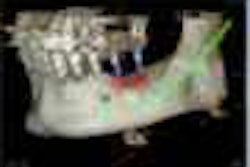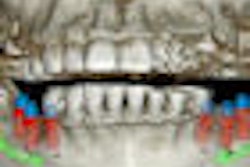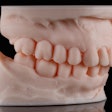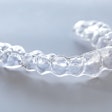Cone-beam CT (CBCT) enhances practitioner confidence during orthodontic pre-treatment diagnosis and treatment planning, according to a presentation given yesterday by UCLA researchers at the American Association for Dental Research annual meeting in Tampa, FL.
Twenty-three practicing orthodontists in Southern California evaluated six patient cases with a range of orthodontic problems, including crowding, severe skeletal asymmetry, temporomandibular disorder, and impactions.
After reviewing patient histories, study models, photos, and radiographs, the orthodontists provided a hypothetical diagnosis and treatment plan and associated confidence (0%-100%). They then evaluated CBCT scans for these patients and noted changes, enhancements, or confirmations to the original diagnosis and treatment plan.
Of 137 total diagnoses, a CBCT scan was requested 58 times, resulting in 22 diagnostic changes and 23 treatment plan changes. After review of the CBCT scans, initial diagnostic and treatment plan confidence increased from 85% to 93% and 83% to 92%, respectively (p < 0.5).
"CBCT scans resulted in diagnosis and treatment plan changes and increased the diagnostic and treatment-planning confidence of orthodontists," the study authors reported. In addition, specific patient cases were associated with increased requests for CBCT scans, they noted.



















